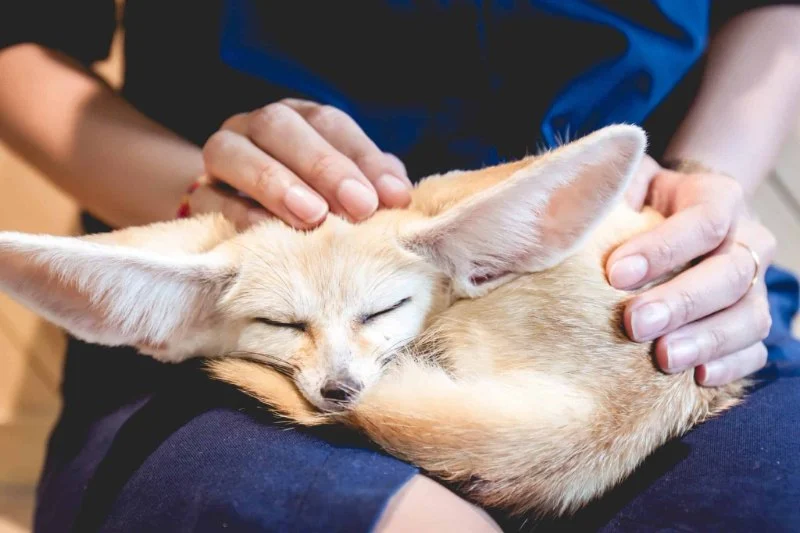
- 1. Unusual Pets in the US
- 2. Exotic Pets You Can Own in the US
- 3. Legal Exotic Pets: What You Need to Know
- 4. Rare Pet Ownership in the US
- 5. Why You Should Consider Unique Pets
- 6. Where to Find Unusual Pets in the US
1. Unusual Pets in the US
While cats and dogs remain the most popular pets in the United States, there is a growing trend of individuals seeking unusual pets that go beyond the traditional choices. From reptiles to exotic mammals, there are many types of unusual pets that are legal to own in the US. In this article, we explore some of the most unique pets that have gained popularity among animal lovers.
These pets often require specific care and attention, but they can offer a rewarding and interesting experience for pet owners looking for something outside the norm. If you're considering adopting a unique pet, it's essential to understand the legalities, care requirements, and responsibilities involved.
2. Exotic Pets You Can Own in the US
Exotic pets are creatures that are not native to typical domestic environments, but they are legal to own in many states in the US. However, it’s important to note that laws governing exotic pet ownership vary by state and locality. Below are some of the most popular exotic pets that are legal to own in the US:

Optimum Aquarium
840 Ernest W Barrett Pkwy NW #700, Kennesaw, GA 30144, USA
2.1 Fennec Fox
The fennec fox, with its distinctive large ears and small size, is an adorable and exotic pet. Native to the deserts of North Africa, these foxes are legal to own in some states, but they require a high level of care. Their social nature and high energy demand that owners be prepared to provide stimulation and ample space to roam.
2.2 Hedgehogs
Hedgehogs are small, nocturnal creatures that make fascinating pets. With their spiny coats and curious behavior, they are legal in most states, although a few places, such as California, have restrictions on their ownership. Hedgehogs are easy to care for and can thrive in a contained environment, making them ideal pets for those looking for something unique but manageable.
2.3 Capybaras
The capybara, the world’s largest rodent, has gained attention as a pet due to its docile nature and social behavior. These giant guinea pigs are legal to own in some states but require a large, secure outdoor area for exercise and play. As highly social animals, capybaras thrive in groups and should not be kept alone.
3. Legal Exotic Pets: What You Need to Know
Owning an exotic pet comes with its own set of rules and regulations. While some states and cities have clear laws about what pets are allowed, others may require permits or licenses for certain animals. It is essential to research both the pet and your state’s laws before acquiring one. Here are a few things to consider when adopting an exotic pet:
3.1 Research Local Laws
Before adopting any exotic pet, always research local laws to ensure it is legal in your area. States like New York and California have strict regulations on exotic pet ownership, while other states may have fewer restrictions. It’s also important to check whether a pet needs a special license or permit.
3.2 Care and Environment
Exotic pets often require specialized care. Whether it’s dietary needs, habitat, or temperature requirements, owning an exotic pet can be a big commitment. Make sure you have the appropriate resources to provide a suitable environment for your pet. For example, reptiles like bearded dragons need specific heat and light conditions to stay healthy.
3.3 Long-Term Commitment
Exotic pets can live for many years. Capybaras, for instance, can live up to 10 years in the right conditions. Consider whether you’re ready for the long-term responsibility of taking care of an unusual pet and whether your lifestyle can accommodate its needs.
4. Rare Pet Ownership in the US
In addition to the exotic pets mentioned above, there are rare pets that are gaining popularity in the US. These pets are often more difficult to find and may require specialized breeders or care facilities. Here are a few rare pets that are legal to own in some parts of the US:
4.1 Spotted Genet
The spotted genet, a small mammal native to Africa, has a cat-like appearance but is actually a distant relative of the mongoose. Known for its agility and playful nature, the genet is legal to own in some states. However, they are nocturnal, require large enclosures, and need proper socialization to thrive as pets.
4.2 Tarantulas
Tarantulas are becoming more common as exotic pets due to their low maintenance and unique characteristics. They come in many species and sizes, and while they might seem intimidating, they are often docile when handled correctly. Most states allow tarantulas as pets, but certain types of spiders may have specific regulations.
5. Why You Should Consider Unique Pets
Choosing a unique or exotic pet can be a fulfilling experience, offering both companionship and educational opportunities. Here are some reasons why you might consider adopting one:
5.1 Educational Value
Owning a unique pet allows you to learn more about the animal kingdom and species that you may not encounter in your everyday life. It also provides an opportunity to teach others, particularly children, about biodiversity and the responsibilities that come with pet ownership.
5.2 Less Common but Fascinating
Unique pets often come with fascinating behaviors and characteristics that make them interesting to observe. Whether it's the social nature of a capybara or the agility of a fennec fox, these animals can provide an enriching experience for those seeking something different from the usual dog or cat.
5.3 Conservation and Awareness
In some cases, owning exotic pets can promote conservation efforts. By understanding these animals in a domestic setting, owners can become advocates for the preservation of their natural habitats. It also raises awareness about endangered species and the importance of protecting them.
6. Where to Find Unusual Pets in the US
If you're interested in adopting a unique pet, there are several places you can find them. Specialized breeders, pet stores, and adoption centers often provide rare and exotic animals. However, it’s essential to choose reputable sources to ensure that the animals are bred ethically and not taken from the wild.
Additionally, websites and forums dedicated to exotic pet enthusiasts can connect you with breeders and resources for learning more about unusual pets. When purchasing a rare or exotic pet, always prioritize the well-being of the animal and ensure it has been raised in a healthy and humane environment.
For those interested in learning more about pet care and discovering suitable products for your exotic animals, visit Omnia Pet, where you can find everything from specialized pet food to habitats and accessories.








 Hollywood Feed4.0 (184 reviews)
Hollywood Feed4.0 (184 reviews) Brew Biscuits5.0 (2 reviews)
Brew Biscuits5.0 (2 reviews) All Friends Animal Hospital4.0 (446 reviews)
All Friends Animal Hospital4.0 (446 reviews) Kittylandkittens LLC0.0 (0 reviews)
Kittylandkittens LLC0.0 (0 reviews) Village Animal Clinic4.0 (212 reviews)
Village Animal Clinic4.0 (212 reviews) Rift Lake Aquatics4.0 (165 reviews)
Rift Lake Aquatics4.0 (165 reviews) Understanding Pet Insurance: What Does It Actually Cover?
Understanding Pet Insurance: What Does It Actually Cover? How to Keep Your Kitten's Eyes Clean and Free of Discharge
How to Keep Your Kitten's Eyes Clean and Free of Discharge The Truth About Heartworm Disease: Prevention is Cheaper Than Cure
The Truth About Heartworm Disease: Prevention is Cheaper Than Cure Why Is My Kitten's Belly Button Showing? | Omnia Pet
Why Is My Kitten's Belly Button Showing? | Omnia Pet Why Does My Cat Bite Me Gently? Love Bites Explained
Why Does My Cat Bite Me Gently? Love Bites Explained How to Stop Your Kitten from Getting into Cabinets
How to Stop Your Kitten from Getting into Cabinets